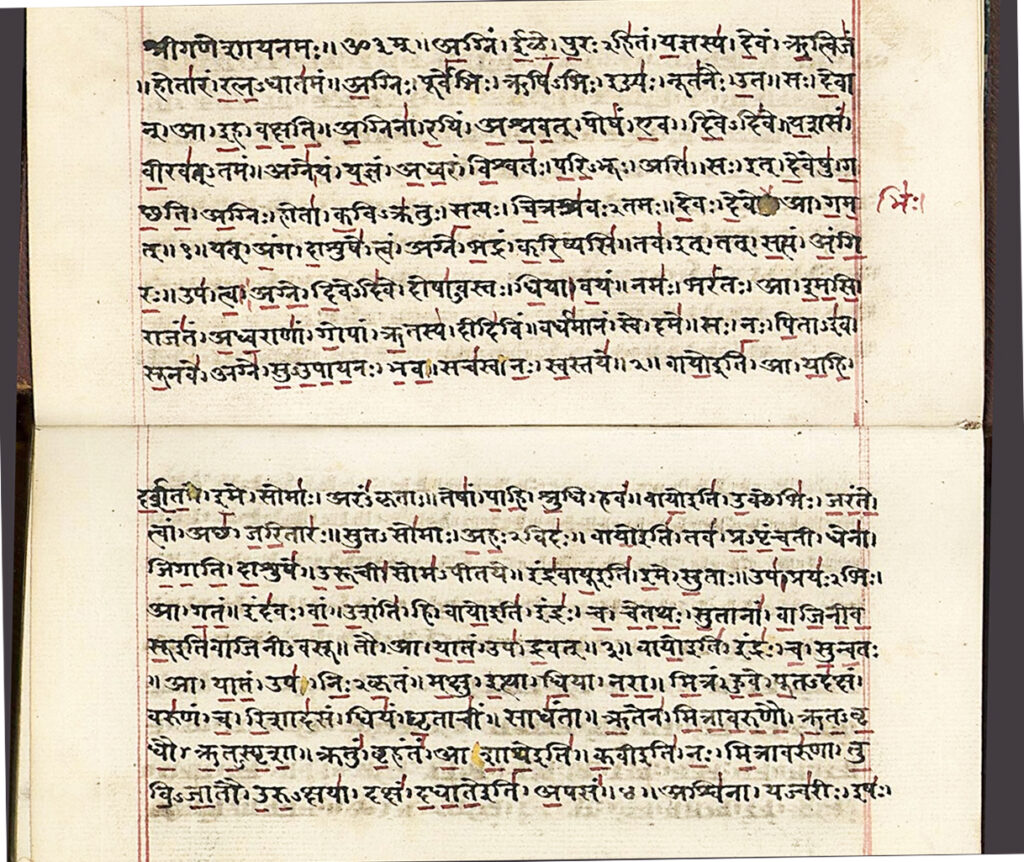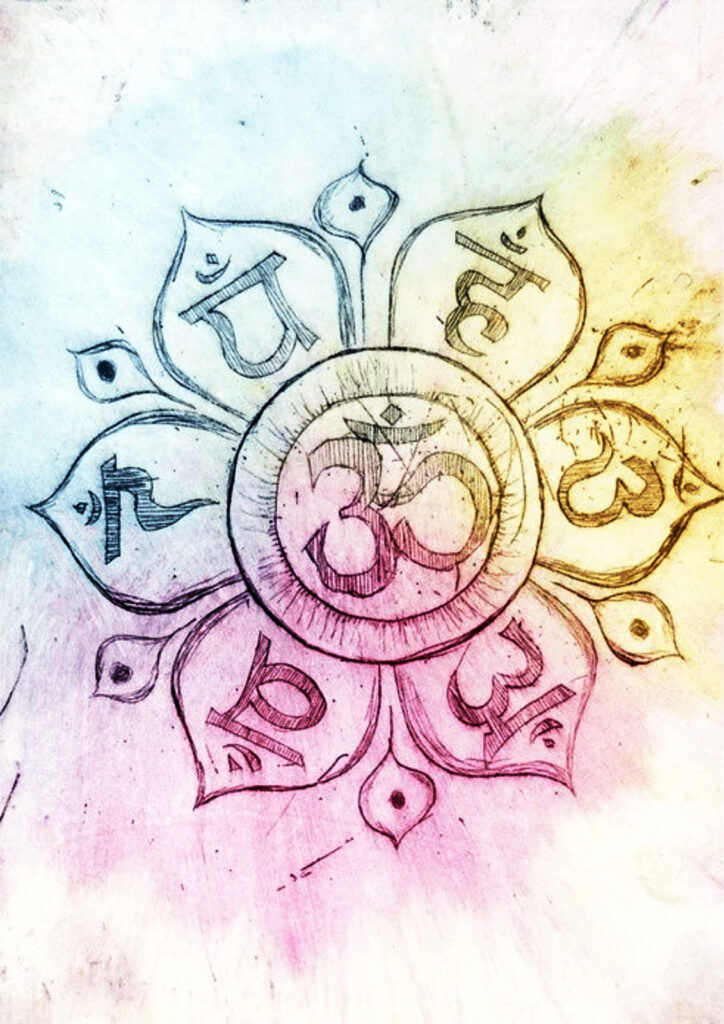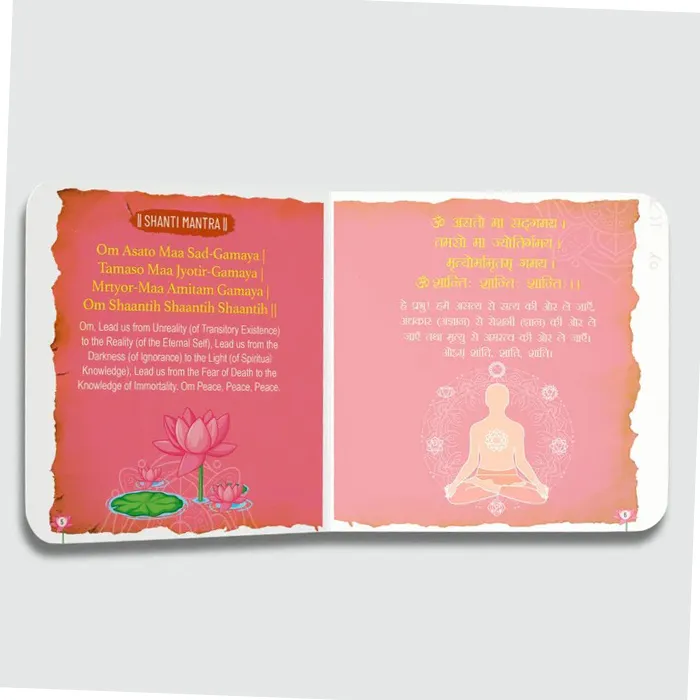Shlokas are a fundamental aspect of spiritual practice and cultural heritage in the Indian subcontinent. These poetic verses, often written in Sanskrit, form the cornerstone of Hindu religious rituals, philosophies, and prayers. Their spirvitual significance is profound, as they are believed to connect the devotee to the divine, impart wisdom, and create a path for personal transformation. The word “shloka” itself means “a verse,” but in the spiritual context, it is much more than mere poetic expression. It is a means of invoking divine blessings, invoking cosmic energies, and transcending worldly limitations.
In this article, we will explore the spiritual significance of shlokas, their impact on the mind and soul, their role in various spiritual practices, and their ability to guide individuals on a path of self-realization.
The Essence of Shlokas
Shlokas are ancient hymns or verses traditionally composed in Sanskrit. They are written in a structured meter, with specific rhythm, sound, and syllabic patterns. Each shloka is crafted with precision, and when recited, it creates an energetic vibration that is said to connect the reciter with the divine or higher consciousness.
The spiritual significance of shlokas lies in their ability to invoke the divine presence, whether in the form of a deity, a cosmic force, or the inner spirit. They serve as vehicles for transmitting sacred knowledge, imparting wisdom, and aligning one’s consciousness with the divine. The syllables and sounds in shlokas are often believed to have vibrational power, capable of influencing the body, mind, and spirit. The very act of chanting or reciting shlokas is considered a spiritual practice that aligns the individual’s energy with the divine frequencies.
Shlokas as Tools for Spiritual Transformation
One of the primary roles of shlokas is their ability to facilitate spiritual transformation. Chanting or repeating these sacred verses is said to have a purifying effect on the mind, body, and soul. Many people engage in the regular practice of chanting shlokas to overcome negative emotions, stress, and distractions. The repetition of these verses helps focus the mind, allowing the practitioner to attain mental clarity, inner peace, and a deep sense of connection with the divine.
Moreover, shlokas are often used in meditation practices. The rhythmic sound of their recitation acts as a powerful mantra, enabling the individual to enter a state of deep concentration or dhyana. As the mind becomes absorbed in the sound and meaning of the shlokas, one’s awareness expands beyond the material world, leading to spiritual awakening.
In the Bhagavad Gita, Lord Krishna explains to Arjuna the importance of controlling the mind through focused practice. He suggests the use of mantras, or sacred sounds, to stabilize the mind and align oneself with the divine. Shlokas, with their sacred sounds and meanings, serve as effective tools for such mental discipline.

The Role of Shlokas in Rituals and Worship
Shlokas are an integral part of Hindu rituals and religious ceremonies. In temples, households, and sacred spaces, these verses are recited during worship and prayer to honor the divine, seek blessings, and express gratitude. The performance of rituals with the recitation of shlokas is believed to invite positive energy into the environment and purify the surroundings.
For example, the “Gayatri Mantra,” one of the most famous shlokas, is often chanted during daily prayers to invoke the blessings of the divine. It is said to purify the mind and enhance spiritual wisdom. In temples, the recitation of shlokas is done to invoke the presence of deities such as Lord Vishnu, Shiva, or Durga, and to establish a spiritual connection during the worship. The sound of the shlokas reverberates through the temple, creating an atmosphere of divine presence and sacredness.
Shlokas are also used during rites of passage, such as birth, marriage, and death, to ensure the proper flow of spiritual energy during significant life events. These verses are recited to seek blessings for prosperity, protection, and success in life. The spiritual power embedded in the shlokas ensures that the individual’s actions are aligned with divine will, enhancing their growth in both the material and spiritual realms.
Shlokas as a Medium for Divine Knowledge
Shlokas have always been a medium through which divine knowledge and wisdom are passed down through generations. The Upanishads, the Bhagavad Gita, the Vedas, and other sacred texts are all written in the form of shlokas. These scriptures, rich with spiritual insights, are encoded in verses that hold layers of meanings. The spiritual teachings embedded in these texts are timeless, providing guidance on how to live a righteous life, cultivate virtues, and attain liberation (moksha).
For instance, the Bhagavad Gita, a dialogue between Lord Krishna and the warrior prince Arjuna, contains many profound shlokas that explore key concepts such as dharma (duty), karma (action), and bhakti (devotion). Each shloka in the Gita encapsulates a universal truth that, when understood deeply, has the power to transform one’s life. The spiritual knowledge contained within these shlokas is not just philosophical but practical, offering the seeker a pathway to navigate the challenges of life.
Shlokas also provide answers to the fundamental questions of life and the universe. What is the nature of the self? What is the purpose of existence? How can one attain peace and fulfillment? These questions, explored in sacred texts through the medium of shlokas, form the bedrock of spiritual practice and provide insights into the nature of reality, existence, and the divine.
The Vibrational Power of Shlokas
The Sanskrit language, in which most shlokas are written, is considered to be the language of the gods. The syllables in Sanskrit are believed to have inherent vibrational frequencies that resonate with the cosmos and the human body. Each sound in a shloka has a corresponding vibration that interacts with the energies of the environment and the mind of the practitioner.
The impact of sound on the human body and mind has been studied in various spiritual traditions. In Hinduism, the sound vibrations created by the chanting of shlokas are considered to have healing properties. The recitation of sacred verses activates the chakras (energy centers) in the body, bringing harmony to the body, mind, and spirit. The rhythmic and repetitive nature of chanting also induces a calming effect, reducing stress, anxiety, and mental clutter.
The use of specific sounds, such as “Om,” in shlokas, is believed to connect the practitioner to the ultimate reality. “Om” is considered the primordial sound, the vibration that signifies the creation of the universe and the presence of the divine. The sound is believed to be the essence of all creation, and its recitation during the chanting of shlokas is a means to align oneself with the highest cosmic energy.

Shlokas and the Path to Liberation (Moksha)
At the core of many Hindu teachings is the goal of attaining liberation (moksha)—freedom from the cycle of birth, death, and rebirth (samsara). Shlokas play a crucial role in this journey. Through devotion (bhakti), knowledge (jnana), and disciplined action (karma), the practitioner can transcend worldly attachments and realize their true nature as divine consciousness.
The recitation of shlokas is believed to purify the heart and mind, making the seeker more receptive to divine grace. In the Bhagavad Gita, Lord Krishna speaks about the power of devotion and the path to moksha, highlighting the importance of a dedicated, focused mind. The chanting of shlokas helps the practitioner develop single-minded devotion and a deep connection with the divine, which is essential for attaining liberation.
By regularly reciting shlokas and meditating upon their meanings, the individual is gradually transformed. The attachment to the material world fades, and the seeker experiences spiritual awakening, ultimately realizing their unity with the Divine.
The spiritual significance of shlokas lies in their ability to connect individuals with the divine, purify the mind and heart, and facilitate personal transformation. Whether recited as part of a religious ritual, practiced in meditation, or studied as part of ancient scriptures, shlokas serve as powerful tools for spiritual growth and self-realization. They offer divine wisdom, harmonize the energies of the practitioner, and guide individuals on the path to liberation.
In today’s world, where distractions are many and inner peace is often elusive, the spiritual practice of chanting shlokas provides a means to restore balance and connect with higher consciousness. Their timeless wisdom, when internalized, continues to be a beacon of guidance, helping individuals navigate the challenges of life and attain a deeper understanding of themselves and the universe. The practice of chanting shlokas is not just an external activity, but an internal journey toward spiritual awakening and enlightenment.























